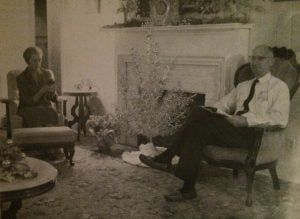A Stricter Standard

He slowly walked into our office, his worn cap nervously twisting in his hands—hands that were equally worn from long years of hard work. He was hesitant, and when he finally spoke, I understood why. Our secretary had approached the counter and asked if she could help him and, after a moment of silence, he looked up from his cap and spoke.
“Do you have . . . ?” and he mentioned a particular young man by name.
All morning we had fielded variations of that question. “Do you have my friend? Do you have my student? Do you have my employee?” If anyone was unaccounted for or unreachable in that time before cell phones, we were being called . . . because the night before three young men had died in a tragic accident, and we had been instructed by the powers that be not to release any names until all their families were notified. That had proven to be a challenge since the work day had already begun when they were discovered. It wasn’t as simple as going to the addresses on their drivers’ licenses.
But something stopped her from giving him the automated response. Looking at the grief etched across his face and filling his eyes, she asked “Who are you, sir?” to which he replied “I’m his daddy . . .”
She answered his question. And the answer was yes.
He looked down at the floor for that eternity that hangs in the air when you don’t know what else to say. Or do. Then he thanked her, turned, and left, his hat still twisting in his gnarled fingers.
I don’t know what he did after he got in his truck and drove away. He may have cried. He may have screamed. He may have done both. Or he may have driven silently for miles and miles, trying to process the loss of his son, pulling himself back together so he could face the rest of his family.
If his story sounds familiar, it’s because I’ve told it before, but this time I wanted to look at his pain through a different lens. When a child dies, whether before birth or at the age of 40 or anywhere in between, there are generally, but not always, two parents left to grieve the loss—a father and a mother. Unfortunately, based on centuries of tradition, we tend to hold the father to a much stricter standard than we do the mother. Fathers are supposed to be the pillar of strength, the physical, mental, and emotional support system that serves as an anchor for the rest of the family. Stoic in the face of grief, they should be strong enough to hide their own pain while trying to carry the heartache of those around them. While we understand and accept the grief of a mother for her child—to the point that we consider it unnatural if that grief is not on display for the world to see—we seem to expect the exact opposite of the father.
But the bond between a father and his son, or a father and his daughter, is as unique and special as the bond between a mother and her child. Sometimes even more so. And when we don’t allow them to grieve . . . when we don’t encourage them to express their sorrow and give voice to their loss, whether through words or tears or both . . . we make adjusting to that loss an impossible task. You cannot work through something that you are not allowed to acknowledge. You cannot learn to live without someone if you are never allowed to publicly grieve. So when you have the opportunity to speak with a man who’s lost the heir to his legacy, ask him how he is. Ask him how he’s adjusting to this new life he never wanted. Encourage him to acknowledge how much he truly did lose. And then listen. Really, really listen. Give him permission to grieve.
About the author: Lisa Shackelford Thomas is a fourth generation member of a family that’s been in funeral service since 1926. She has been employed at Shackelford Funeral Directors in Savannah, Tennessee for over 40 years and currently serves as the manager there. Any opinions expressed here are hers and hers alone, and may or may not reflect the opinions of other Shackelford family members or staff.
The post A Stricter Standard appeared first on Shackelford Funeral Directors | Blog.












